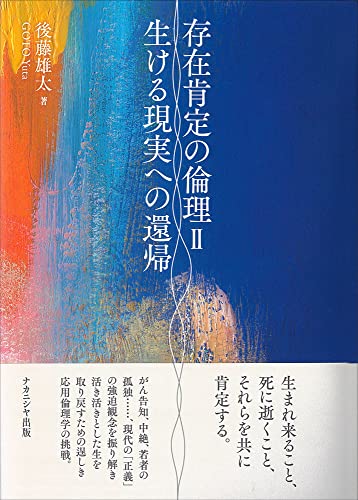2 0 0 0 OA 風水害における消防団員の人的被害の特徴 -1969年から2018年までの災害を事例に-
- 著者
- 山田 忠 後藤 雄太 松枝 心路
- 出版者
- 公益社団法人 土木学会
- 雑誌
- 土木学会論文集F6(安全問題) (ISSN:21856621)
- 巻号頁・発行日
- vol.76, no.1, pp.20-27, 2020 (Released:2020-08-20)
- 参考文献数
- 78
- 被引用文献数
- 1 1
本報告は消防団が今後の風水害活動で注意すべき事項について検討することを目的に行った.具体的には,消防団員が殉職した1969年から2018年の風水害の事例を消防白書や新聞記事,既往研究などから把握し,殉職時の状況を分析した. 結果として,消防団が今後の風水害活動で注意すべき3点を示した.1点目に,風水害は出動途上から帰宅中までの一連の活動において殉職者が出ており,一連の活動で安全に配慮する必要がある.2点目に,河川を中心に夜間の強い雨が観測されているときに殉職者が多い傾向にあり,夜間で雨が強い場合は活動しない,もしくは団員の安全が確保できた状態で活動に取り組む必要がある.3点目に,昼間で雨のピークが過ぎた後の活動でも殉職者が出ており,昼間で雨が弱くなっても周囲の状況に細心の注意を払って活動する必要がある.
2 0 0 0 IR 倫理学における宮沢賢治 : その実践と思想の現代的意義
- 著者
- 後藤 雄太
- 出版者
- 広島大学応用倫理学プロジェクト研究センター, 西日本応用倫理学研究会
- 雑誌
- ぷらくしす (ISSN:18808638)
- 巻号頁・発行日
- no.21, pp.47-57, 2020-03-31
広島大学応用倫理学プロジェクト研究センター研究成果報告書統一テーマ : [平和構築に向けて : 和解の諸相] 《Zur Konstruierung des Friedens: Verschiedene Aspekte der Versöhnung》
2 0 0 0 ハザード・モデルによる自動車不具合率の推計
- 著者
- 福本 潤也 後藤 雄太
- 出版者
- 公益社団法人 土木学会
- 雑誌
- 土木学会論文集D3(土木計画学)
- 巻号頁・発行日
- vol.67, no.4, pp.390-407, 2011
2004年に国土交通省の下に「自動車の検査・点検整備に関する基礎調査検討会」が設けられた.同検討会は自動車検査証の有効期間延長の社会的影響について推計・試算を行い,有効期間の延長が自動車の安全確保と環境保全に甚大な悪影響を及ぼすと結論づけた.しかし,同検討会の推計・試算で重要な位置づけを占める自動車の不具合率の推計は様々な問題を抱えている.本研究では,同検討会の推計が抱える問題を克服するハザード・モデルを提案する.同検討会が不具合率の推計に用いたデータを使用してハザード・モデルのパラメータを推計する.推計結果に基づき,同検討会による社会的影響の推計・試算結果が過大推計であった可能性を指摘する.
1 0 0 0 OA 生の否定に抗して : 人工妊娠中絶批判のための一試論
- 著者
- 後藤 雄太
- 出版者
- 日本医学哲学・倫理学会
- 雑誌
- 医学哲学 医学倫理 (ISSN:02896427)
- 巻号頁・発行日
- vol.26, pp.31-40, 2008-10-22 (Released:2018-02-01)
This paper aims to criticize abortion and to present a vision of what our society and life should be. In Japan, abortion is technically illegal, but loopholes result in about as many as 300,000 approved pregnancy terminations a year. This paper insists that most abortions (including shady abortions) in Japan should not be approved (the paper does not dwell on abortion in cases of rape or when there is danger to the mother's life because space is limited). Broadly speaking, the main issues in the abortion debate are whether the fetus is a "person" or not, whether "rights" such as the reproductive rights of women and the fetal right to live should be recognized and whether a relationship between a pregnant woman and her fetus is formed. This paper argues against abortion from a relationalistic viewpoint; it criticizes the past relationalistic views and develops a new relationalistic view. Abortion is an act where adults unilaterally deny "the life of a child who is growing and affirming his/her own being", thereby destroying any relationship with the child. Moreover, it is an act of adults refusing a child's participation in society simply because the child was accidentally conceived by parents who did not want him/her, or simply because the child was diagnosed with a disability, etc. In brief, abortion ruins our conception of "society being a place that welcomes life hospitably". Welcoming life hospitably is to accept it unconditionally; just as it is. In order to actually solve the abortion problem, one must establish relationships where one can affirm one's own life, the opposite sex person's life, and the fetus' life, as well. This is much more important than abstractly arguing over rights, personhood, and such.
1 0 0 0 OA スピリチュアル・ペインは癒されうるか : 死生観の転回構造
- 著者
- 後藤 雄太
- 出版者
- 日本医学哲学・倫理学会
- 雑誌
- 医学哲学 医学倫理 (ISSN:02896427)
- 巻号頁・発行日
- vol.23, pp.65-75, 2005-10-26 (Released:2018-02-01)
Generally speaking, it is existential pain, that is, spiritual pain, that distresses terminal patients to the very end. But spiritual pain isn't a concern only to terminal patients. It's fundamentally a concern that all people, as mortal beings, must address. This paper examines the search for spiritual relief. A key concept in this search is the "turning of outlook on life and death". This means that a thorough realization of the certainty of death becomes an unconditional affirmation of life. The reality of death invalidates any "meaning" or "value" that we place on our lives. At first glance, this invalidation seems to result in a negative situation. But a thorough realization of the certainty of death evidences "something beyond human power" that refuses to be given "meaning" or "value" by human beings. This "something beyond human power" is "life itself", or the "being itself" that we tend to miss in daily life. In the sense stated above a thorough realization of the certainty of death is something special. Recent thinking is that terminal patients can reconfirm the meaning or value of their lives through "narrative" . This paper, however, proposes that spiritual pain is a important clue to "something that can't be described" and therefore eliminates the need to ascribe "meaning" or "value". This paper proposes that there is no answer to the question "What is the meaning of life (or death)?" and that spiritual pain cannot be relieved by seeking the answer to this question. Paradoxically, spiritual relief can be found by living with the uncertainty of death and the mystery of life, not by removing these through "narrative".
1 0 0 0 OA 死の受容のかたち : がん告知の問題から
- 著者
- 後藤 雄太
- 出版者
- 日本医学哲学・倫理学会
- 雑誌
- 医学哲学 医学倫理 (ISSN:02896427)
- 巻号頁・発行日
- vol.18, pp.122-133, 2000-12-15 (Released:2018-02-01)
In recent years, with the spreading thought of "the right to know" and "self-determination", it seems that more Japanese people want to be told of their diagnosis of cancer. So a growing number of Japanese doctors tell their patients that they are suffering from cancer. Now, most Japanese tend to think that not informing patients of their diagnosis of cancer implies telling a lie and an untruth, a deception, a trick, a lack of a relationship of mutual trust, etc. In this paper, however, I argue that refusing to inform patients of their diagnosis of cancer can be advantageous depending on the circumstances, in opposition to the current thought of the times. For humans can naturally have the knowledge of the time of one's death, though they are never informed of it by others. We don't necessarily need to give the objective/scientific knowledge priority over the natural knowledge. Essentially, death cannot be controlled by one's own will power. Leaving a matter of life and death to Nature that transcends man's own will power can also be a style of accepting one's death.
